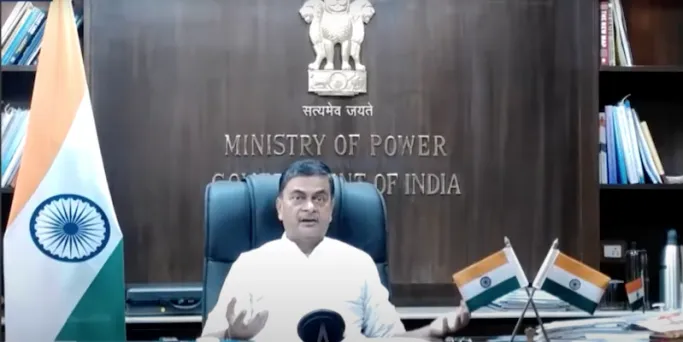New PV producing bases outside China essential to reduce supply interruption, India minister claims
- It is "undesirable" for China to dominate solar manufacturing and also manufacturing bases outside of the nation are required to lower the danger of supply chain interruptions, an Indian government official has claimed.

Speaking at an on-line event held by the Confederation of Indian Industry last week, India's Minister of Power and New and Renewable Energy (MNRE), Raj Kumar Singh, claimed the country wanted to increase its renewable energy development through a combination of rewards to produce locally, the creation of neighborhood clean energy jobs and tariffs on imports.
Singh stated India had ambitions to become a world leader in solar production and regreted the prominence of Chinese firms in the industry. "We desire that capacity to be added based on manufacturing in India, we do not intend to export jobs to China or to any other nation," he stated.
Singh said it was "undesirable" for producing to be concentrated in just one country and that other manufacturing bases were required "so that there is no disruption in the world supply chain".
In a drive to get firms to start making in India, the government will present incentives through land schedule and financial backing, along with imposing profession tariffs on products made outside the country.
" We have actually decided to establish a toll obstacle," stated Singh. "So if you wish to market in India, you need to set up shop right here or you have to establish production below."
In March, India introduced it will certainly introduce a 40% fundamental custom-mades duty (BCD) on solar modules as of April 2022 to cut the reliance on imports and expand the country's PV manufacturing base.
Singh claimed that the federal government had "obtained expressions of interest for large amounts of production of modules" considering that the statement.
In addition, as part of a "slew of procedures", the federal government will certainly present a 'environment-friendly tab' where clean power companies can establish generation capacity in India through an 'open accessibility' system that will certainly supply them with land development civil liberties within 15 days. It will certainly likewise permit companies to obtain renewable energy from a distribution company at expense via 'below' power acquisition contracts (PPAs), stated Singh.
In April, the MNRE established a production-linked motivation (PLI) programme that intended to incentivise companies setting up incorporated, higher capability plants.
Currently, around 80% of India's local demand for solar modules is satisfied with imports from other Asian nations such as China, Vietnam and Malaysia and also India has a target of including 280GW of solar energy installment by 2030.
" The renewable energy field in India has actually grown multifold [sic]," claimed Singh. "It has attracted a financial investment of nearly US$ 70 billion in the last 7 years as well as this really shows the dynamic and also capitalist pleasant ecological community that exists today in India."
Last month, research by JMK Research and Analytics stated that module as well as cell suppliers in India will increase their manufacturing capacities by 13.75 GW for modules and also 6.9 GW for solar cells over the next 18 months.
Also read

